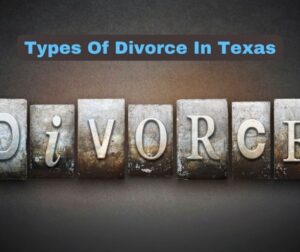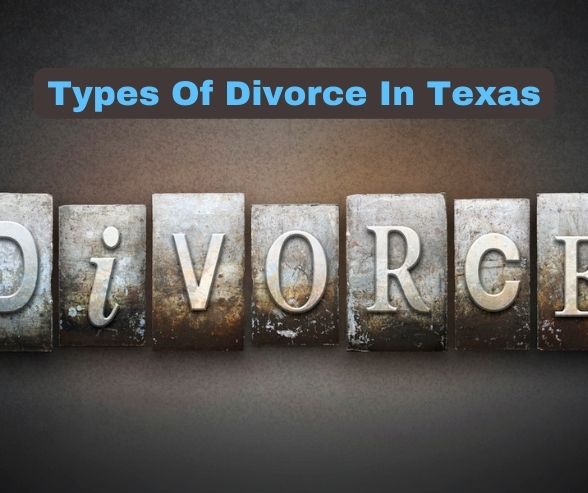Knowing the different types of divorce that exist can help you choose the type that best suits your situation. Factors such as cost and how much your interests will be protected are just a few of the things that can determine what to choose. The basic types of divorce include:
- Litigated divorce
- Arbitrated divorce
- Mediated divorce
- Default divorce
- Collaborative divorce
- Uncontested divorce
You can guess what kind of process is involved in a particular type of divorce from its name. For example, mediated divorce involves some kind of mediation between the parties involved. Spouses also have the option of either filing a fault or no-fault divorce. You need to understand what fault means in Texas law to pick the right option.
Contents
What Does Fault Mean In Divorce?
What Are The Options For Divorce In Texas?
 Texas used to require spouses filing for divorce to prove fault in order for the divorce to go through. This standard no longer applies because courts will still grant divorce even if you fail to prove fault. Most spouses in Texas file for no-fault divorces.
Texas used to require spouses filing for divorce to prove fault in order for the divorce to go through. This standard no longer applies because courts will still grant divorce even if you fail to prove fault. Most spouses in Texas file for no-fault divorces.
The reason is that alleging fault means that the spouse filing the divorce has to gather clear evidence that will convince the court. This costs extra money and can make the divorce process take longer than it would have had it been a no-fault divorce.
Texas only allows you to allege fault based on the following grounds:
- Adultery
- Physical or mental abuse
- Domestic violence
- At least one year of abandonment
- A felony conviction
- Mental incapacitation
Proving fault can lead to the accused party getting more assets, more custody, or higher alimony. You need to discuss with your attorney whether you can file a fault-based divorce or not.
What Is A Default Divorce?
It is not unusual for people with a spouse to refuse to cooperate with divorce proceedings when they get notified that the other spouse has filed for divorce. Sometimes the spouse who did not file for divorce cannot be located to be served with papers. If any of these circumstances persist beyond the time allocated for responding to the divorce filing, the court will grant a default divorce to the filing spouse.
Uncontested Divorce In Texas
An uncontested divorce is where both spouses agree on all issues without the involvement of any third party including divorce lawyers. That involves agreeing to divorce and agreeing on all terms of divorce involving issues such as child support, child custody, property division, and more.
But the agreement they reach must comply with legal standards. An uncontested divorce is more appropriate for a couple without children and with little to no assets. Issues concerning children can complicate the divorce process making it harder for couples to reach an agreement on those issues. Another issue is that couples are more likely to unknowingly give up their rights in an uncontested divorce.
This may lead to them losing their assets or agreeing to unsustainable child support amounts. So, having an uncontested divorce with a manipulative, mentally challenged, or abusive partner is not the right idea. A mediated or collaborative divorce may be a better idea because other parties will be helping with the negotiations.


